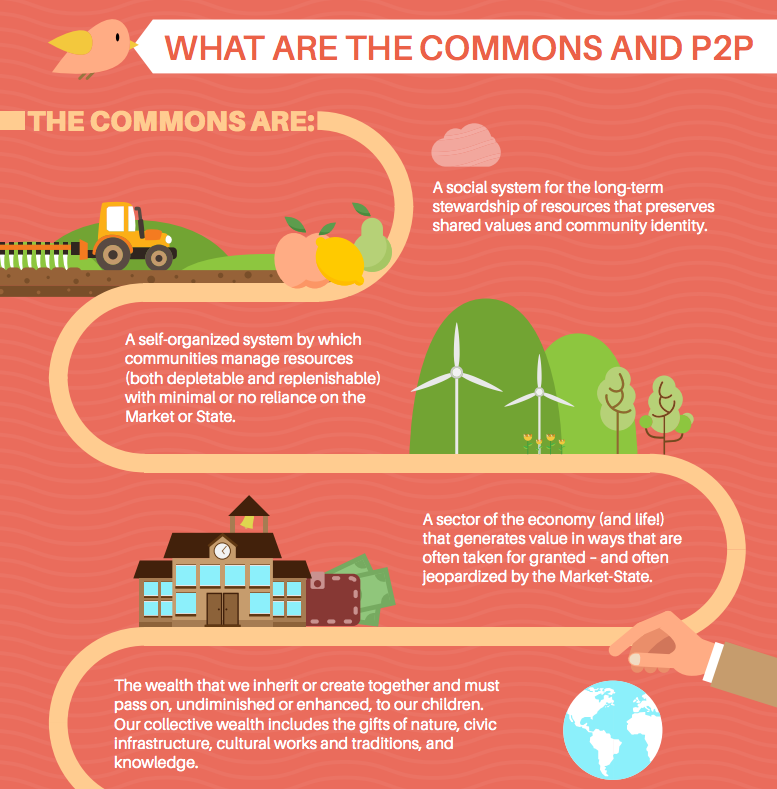A New Primer on the Commons & P2P
Most readers of this blog don’t need an introduction the commons, but there are always newcomers for whom a short overview would be useful. The Transnational Institute and the P2P Foundation have done just that with an attractive new publication “Commons Transition and P2P: A Primer.”
The beautifully designed fifty-page booklet does not dumb down the topic; it simply makes some of the complexities associated with commons and peer production more accessible to the general reader in a single document. The primer explains the basics of commons and peer-to-peer production (P2P), how they interrelate, their movements and trends, and "how a Commons transition is poised to reinvigorate work, politics, production, and care, both interpersonal and environmental.”

A short video about the primer can be watched here. It explains that "the commons are a self-organized system by which local communities manage shared resources with minimal or no reliance on the market or the state. P2P means collaboration, ‘peer-to-peer’, ‘people-to-people’ or ‘person-to-person.’ P2P is a type of non-hierarchical and non-coercive social relations that enables a transition to a fairer economy for people and nature.”
Besides introducing the commons & P2P, the booklet suggests five practical guidelines, with examples, for achieving a transition to a commons/P2P-based society:
- Read more about A New Primer on the Commons & P2P
- Log in or register to post comments


 Paula Z. Segal, an attorney who works with the Urban Justice Center in New York City, explained in
Paula Z. Segal, an attorney who works with the Urban Justice Center in New York City, explained in





Recent comments